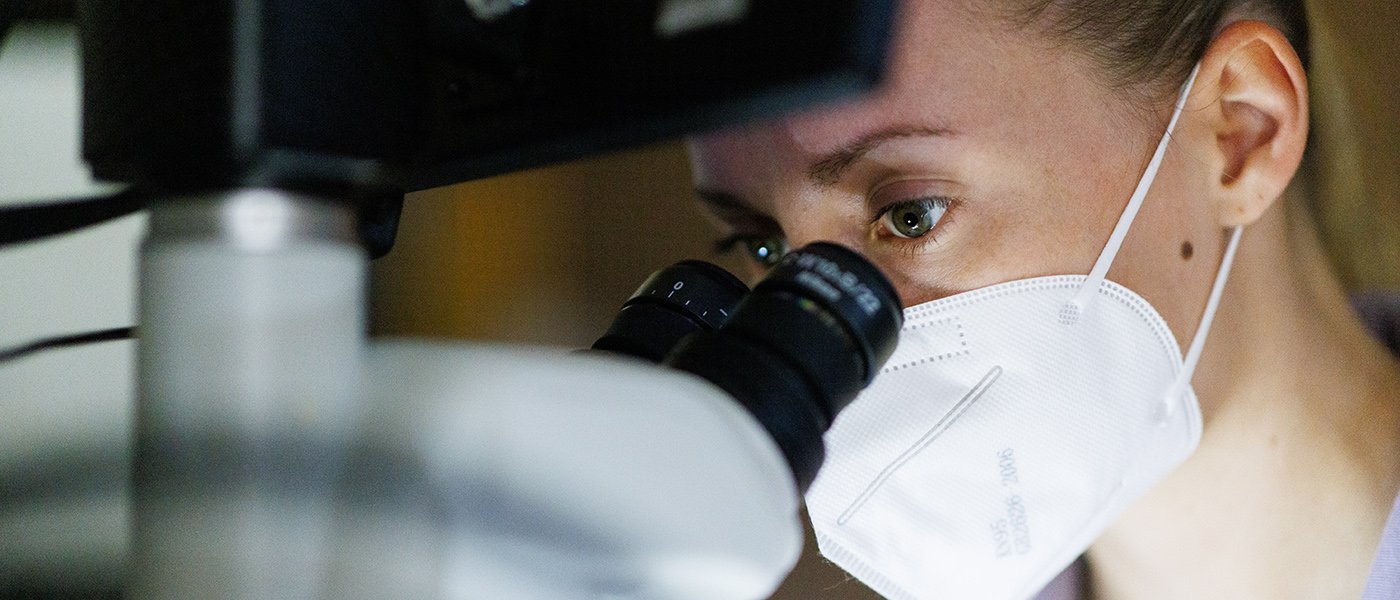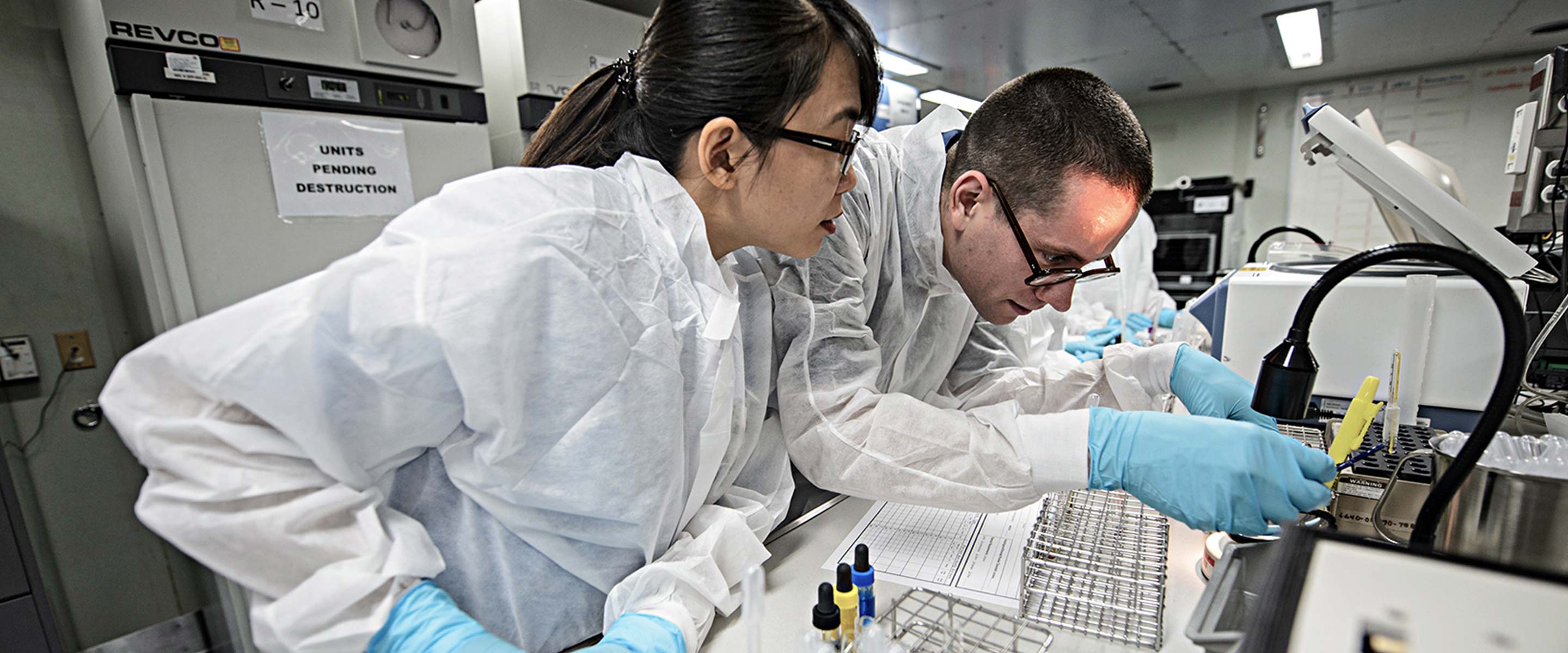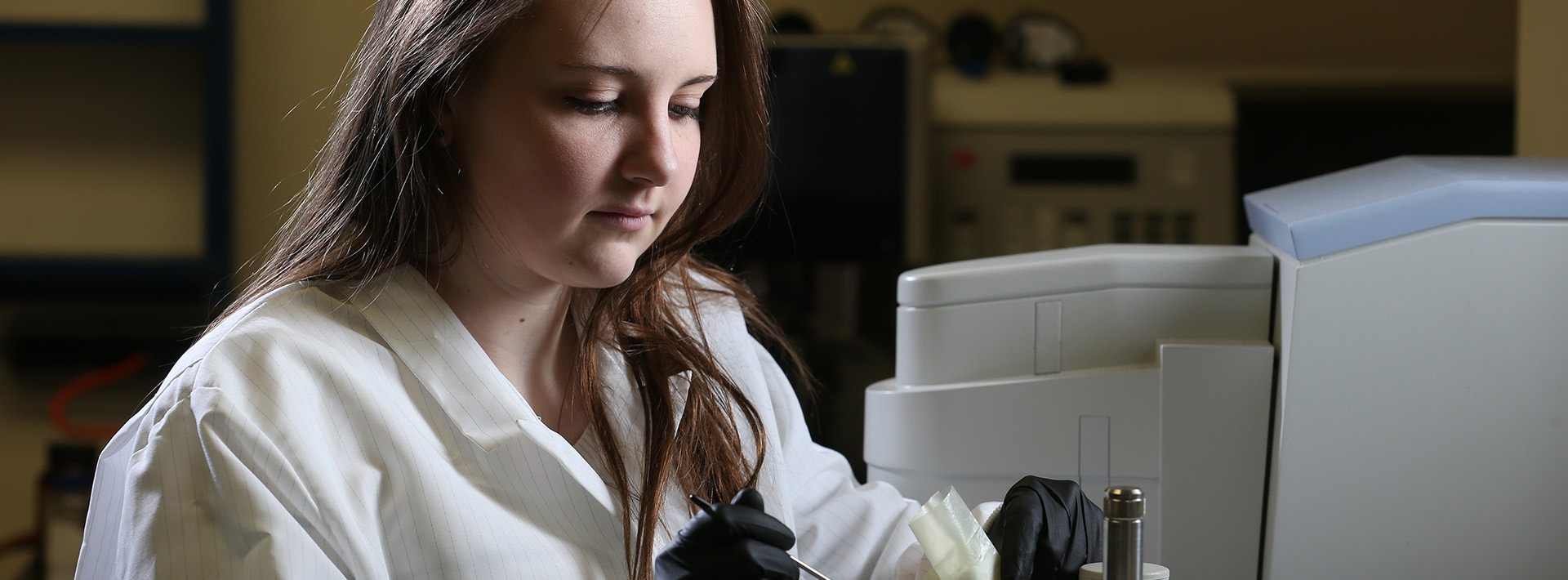Forensic Science Technician Education - Although forensic scientists are admired on TV crime shows, this lucrative profession is more than just a Hollywood game. The day-to-day responsibilities of a forensic scientist can be very complex and varied.
Forensic science is the application of various sciences, such as chemistry and biology, to legal matters. In general, forensic scientists support criminal investigations by collecting and analyzing evidence to produce reliable scientific findings. With this primary goal, forensic science can be a challenging, rigorous and highly rewarding career path for people who want to make a difference.
Forensic Science Technician Education

Although those interested in pursuing a career in this field must have a passion for science, this is not just a lab job. Forensic scientists may be asked to collect evidence at a crime scene in progress or participate in a criminal case. People should consider these unique requirements when evaluating whether becoming a forensic scientist is the right choice for them. It is helpful to consider the following skills and personality traits that often equip candidates for success in forensic science:
Masters In Forensic Science Online
The specific responsibilities of a forensic scientist depend on the area of focus and the industry in which the individual is employed. Some of the areas of focus include crime scene forensics, digital evidence analysis, forensic biochemistry, forensic computer analysis, and forensic pathology. Forensic scientists can work for the government, private laboratories, police departments, medical research institutes, private institutions and hospitals.
People who find this field attractive should check out the following five steps to becoming a forensic scientist.
The first step to becoming a forensic scientist is to obtain a bachelor's degree in science - the area of focus can be biology, physics, chemistry or forensic science itself, if applicable. The American Academy of Forensic Sciences recommends that students add mathematics, statistics, and writing courses to their courses, as these courses are essential to the careers of a forensic scientist.
Although some graduates pursue a career as a forensic scientist with only a bachelor's degree, it is very common for professionals working in this competitive field to also have a forensic science degree. Master's programs, such as the University of Central Florida's online Master of Science in Forensic Science, offer a curriculum focused on modern topics in forensic science, cutting-edge technology used in forensics, and access to faculty members who truly know the field. "The strength of the unit lies behind strong research, which is primarily funded to conduct forensic science research by the Department of Justice and Defence," said chemistry professor Jack Ballantyne. "Therefore, all teaching builds on the foundation of integrating modern technology and methods and keeping the student up-to-date with the latest applied research and blue sky." In addition, master's programs often offer the opportunity to choose an area of focus, such as forensic analysis or forensic biochemistry, to further prepare graduates for employment in this field.
Forensic Science Graduate
For junior forensic scientists with no prior work experience, on-the-job training is often necessary. This orientation program ensures that professionals understand the appropriate processes and procedures unique to a particular role before going into freelance work.
With the constant advancement of technology and science and the need to stay abreast of best practices, forensic scientists can expect to continue to receive on-the-job training throughout their careers.
The final step in building a successful career as a forensic scientist is to pursue professional certification. Many certifications are available in the United States, depending on the geographic location and area of focus within forensic science. An example is the American Board of Criminalistics, which provides testing and accreditation. Other organizations that provide accreditation include the Board of Forensic Document Examiners and the International Board of Forensic Engineering.

Forensic scientists working in the medical field often specialize in forensic toxicology. Toxicology is a focus area within forensic science that studies poisons and their effects on the human body. In a hospital setting, a toxicologist may be involved in substance abuse investigations, suspected drug use by athletes, and other criminal investigations involving drugs and alcohol. For example, a toxicologist may work with the medical examiner to determine the cause of death and whether drugs played a role.
Best Master's In Forensic Science Degree Programs Of 2023
Forensic science plays an important role in many criminal investigations and prosecutions. Its role is to assist in finding facts that may be at stake in legal matters. Apart from linking a person to a crime scene or incident, it plays a role in eliminating people of interest who may be suspects. It plays a public health role by helping to prevent sex offenders and other repeat offenders from attacking or harming potential victims by ensuring that such people are punished appropriately within the full legal system. As DNA methods are more sensitive and faster, the use of point-of-care tools (such as point-of-care in a clinical setting) is expected to be extended beyond the laboratory to reservation stations, major disaster areas and border crossings.
Therefore, the use of DNA forensics as an aid in human identification is expected to be used more in non-criminal investigations, leading to increased job opportunities. Employment of forensic scientists is expected to grow 17 percent between 2016 and 2026, according to the Bureau of Labor Statistics. Although this growth is higher than the average for all professions, it is important to note that the field of forensic science is very small. , and this increase amounts to approximately 2,600 new jobs during this period. As of May 2018, the average annual salary for professionals in this field was $58,230, with the top 10 percent earning more than $97,200 and the bottom 10 percent earning less than $34,600. The idea is promising for those pursuing a career in forensic science.
Obviously, forensic science is far from Hollywood fiction. In fact, it is a specialized field that requires careful attention to detail combined with a passion for science. For those looking for the reward and excitement of making a difference, this exciting job is the right place for an educational journey. Forensic science degrees prepare students for law enforcement careers. Students analyze aspects of criminal cases, such as evidence and human testimony.
An advertising supported site. Featured or trusted Affiliate programs and all search, finder or match results are for schools that compensate us. This fee does not affect our school standards, resource guidelines or other independent planning information published on this site.
Forensic Science » College Of Pharmacy » University Of Florida
Forensic science degrees include physical, biomedical, and social sciences. Students analyze aspects of criminal cases, such as evidence and human testimony. These programs include courses in anthropology, forensics, and autopsy procedures.
Applicants for a bachelor's degree in forensic science generally need a high school diploma or equivalent. Students pursuing a master's degree usually need a bachelor's degree in a related field, such as biology, chemistry, or natural science.
Graduates of forensic science programs can become forensic scientists and technicians. Graduates often work for law enforcement agencies, such as local police departments and the FBI. People can also pursue degrees in forensic psychology. View our ranking here

Forensic scientists apply biology, psychology and chemistry to criminal and civil law. Forensic scientists handle evidence and crime scenes for law enforcement.
Career Guide: How To Become A Forensic Expert
A hard science, forensic science deals with working evidence and crime scenes. Criminology is a soft science that includes sociology and psychology. Criminologists analyze crime and its impact on society.
Graduates can pursue forensic science careers such as forensic scientists and forensic science specialists. Graduates often work for law enforcement agencies. They can also be researchers and clinical laboratory scientists.
Students can earn a degree in forensic science to qualify for positions as forensic scientists and forensic science specialists. Experienced professionals can work for agencies such as the FBI or CIA.
Forensic science professionals earn an average salary of $60,590 per year, according to the Bureau of Labor Statistics (BLS). These professionals often analyze and photograph crime scenes. They also record observations and findings, collect and analyze evidence, and reconstruct crime scenes. Experts working in laboratories analyze evidence using various techniques. They can also use DNA to investigate connections between suspects, evidence and crimes.
Forensic Document Examiner: Salary, Skills, & More
Many institutions offer online forensic science degrees. Students often choose interdisciplinary programs because of the hands-on nature of forensic work. However, online programs can help students continue to work while earning their degree.
According to the National Center for Education Statistics, the average annual cost of tuition, fees, and room and board for the 2018-19 academic year was $18,380 for public schools and $47,420 for private schools. Students can save money by living off campus and apply for financial aid and scholarships.
Pursuing an online degree in forensic science can also help students lower their costs. Online students often avoid travel expenses. They can also save money on transportation, housing, and childcare. In addition, online students can continue to work full-time while completing their degree.

After obtaining a degree in forensic science, graduates often become forensic
How To Become A Forensic Scientist
Forensic science technician near me, forensic science education requirements, education in forensic science, forensic technician education, forensic science education, forensic science technician degree, education for forensic science, forensic science technician, forensic science technician programs, forensic science technician schools, forensic science technician education requirements, forensic science technician colleges
0 Comments